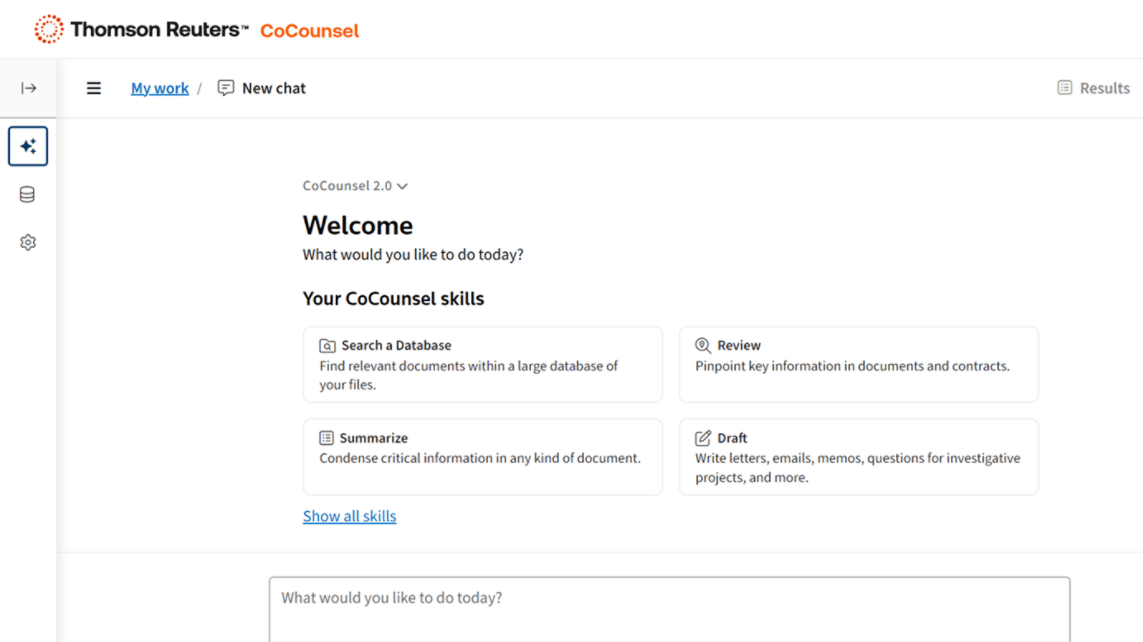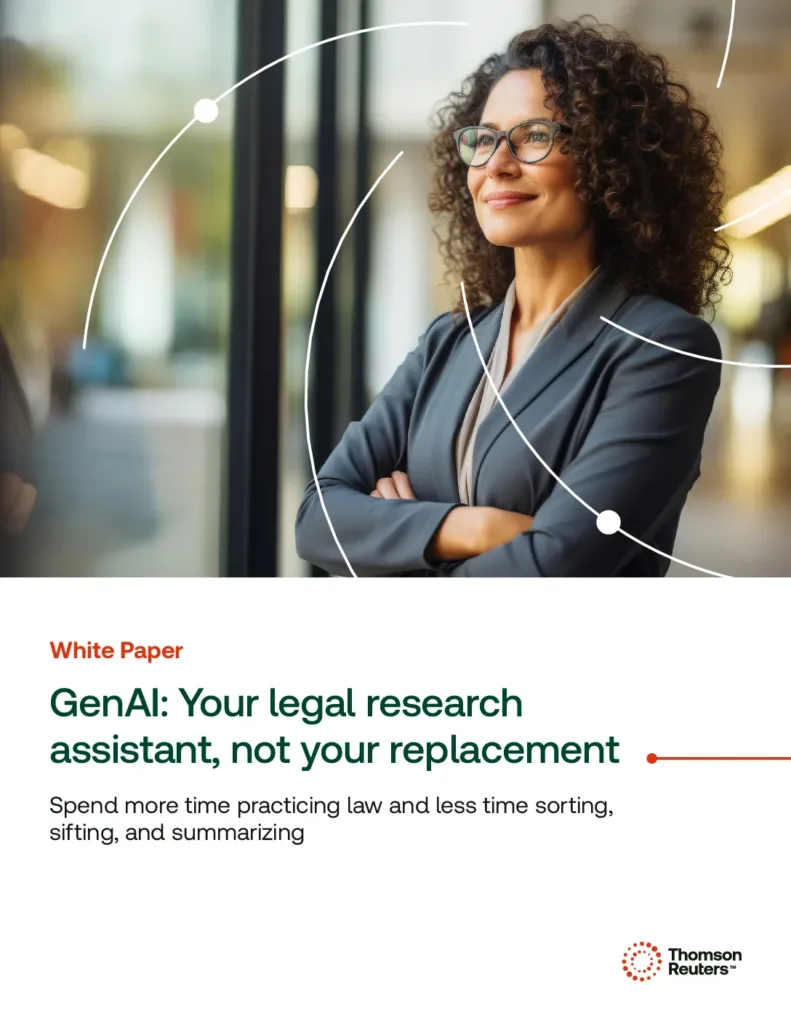Three reasons why generative AI will not take over lawyer jobs
Attorneys for several decades have been using AI to optimize their workflow, but the sudden and instantaneous growth of generative AI is raising concerns about its long-term impact on the industry.
Given the tremendous amount of document-based work in the legal industry, the breadth and depth of generative AI’s capabilities will almost certainly cause major disruption in the years ahead.
It’s still early in the game so there are many unknowns regarding the impact of AI on legal departments, but it could offer a tremendous opportunity for career growth. Generative AI can provide significant advantages in your research, by helping source answers more quickly. You can expect to engage with generative AI in a conversational manner to get up to speed on what’s new and get model language to start drafting.
The future of AI and legal professionals calls for streamlining tedious and time-consuming tasks, such as due diligence, document and contract review, contract management, sorting files, and proofreading. As a result, you’ll be able to focus on more valuable and creative legal pursuits and advice that only a human can tackle.

CoCounsel
Bringing together generative AI, trusted content and expert insights for all legal professionals
Meet your AI assistant ↗Jump to ↓
| Limited accuracy |
| Increased risks |
| Privacy and ethical issues |
| Why can’t AI replace lawyers? |
1. Limited accuracy
AI models are trained on a massive amount of text and search for what they’re told. But they are only trained to create results that seem plausible. Not all generative AI tech out there prioritizes being accurate or representative of the latest information.
An AI “hallucination” results when the model completely makes something up. The AI-generated sentence may sound reasonable and flow nicely, but it turns out not to be based in fact.
However, providing authority for the answer is one way the generative AI features from Thomson Reuters minimize hallucinations. Attorneys will be able to see the reasons for the response and verify that the answer makes sense and is based in fact.
2. Increased risk
Eight in 10 partners or managing partners said they had risk concerns around generative AI or ChatGPT within the law firm, according to a recent study by the Thomson Reuters Institute. What’s more, none of the 157 large law firm respondents said their firms had no risk concerns about the technology.
Part of those concerns center around the inaccuracies in an industry that depends on precise decision making. Other areas of increased risk include the handling of confidential data, and in the case of public tools such as ChatGPT, the ownership of private data and security concerns.
3. Privacy and ethical issues
As lawyers increasingly rely on generative AI for research and writing, it’s possible the less they will use their knowledge and skills. This may raise ethical concerns around acting in the best interest of the client, as well as malpractice and other issues. In addition, the legal professionals we surveyed generally do not fully trust generative AI tools with confidential data, and they believe guardrails must be applied to AI use. These trust and ethical issues are precisely the concerns Thomson Reuters CEO Steve Hasker takes seriously.
Why can’t AI replace lawyers?
Generative AI cannot replace lawyers because it needs human oversight to work. Even with retrieval augmented generation, a process that uses vetted sources to enhance accuracy, generative AI is not completely accurate. Generative AI will augment or fully automate daily legal tasks, but simply can’t handle certain critical and nuanced items.
Rather than being replaced or displaced by generative AI, humans will prove critical to ensuring that it serves the industry well. Think of AI as your indispensable assistant that frees up your time for more advanced tasks that need the human touch.
Some legal industry jobs that focus on searching for and coding information in legal documents may be eliminated. But other jobs will be created, including managing and developing AI, writing algorithms for it, and reviewing AI-assisted work product.
Having humans use AI programs to control the output and mitigate errors may offer the best strategy for forward-thinking lawyers. To find out more about the rise of generative AI, watch our webinar, “The new era – redefining how legal professionals do their work.”

White Paper
Unlock the hidden value in your legal department with data-driven insights
Access white paper ↗









